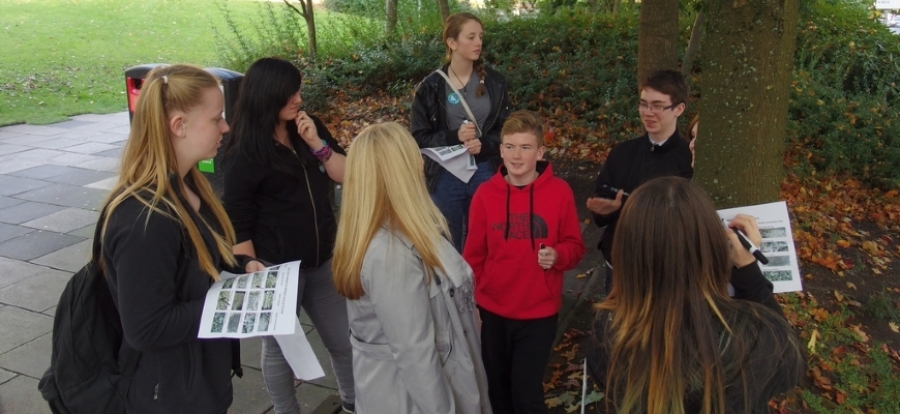While Curriculum for Excellence in Scotland, and in many cases, the natural creativity and ingenuity of our teachers, seeks to promote and facilitate interdisciplinary learning and contextualised learning, more of us are literally taking learning outside, beyond the four walls. The importance of this can be justified both on a national and international level. The new How Good is our School 4 specifically mentions as one of its aims “to increase Learning for Sustainability.”

At the heart of Learning for Sustainability we have UNESCO’s Global Goals for Sustainable Development among others, include:
- Life on Land.
- Good Health and Wellbeing.
- Quality Education.
It is essential that our learners now and in the future are developing the core skills which will allow for effective decision-making, working together and teamwork, because their choices and actions will impact upon the preservation, the safety and the future of our planet. These core skills are made explicit and very usefully illustrated by the British Council. The development of such core skills aims to prepare young people for life and work in a globalised economy.

Combining language learning with being outside, enjoying nature and teaching the use of natural resources and the local environment around learners makes for a stimulating, enriching opportunity. This is relevant to the context of a school or community, and which can be developed and linked to a much wider global context. One very effective way to do this in Scotland, and beyond, is by combining language learning with the John Muir Award.

This is also a meaningful way to reinforce the benefits of being outside for health and wellbeing, and to raise learners’ awareness of their own local environments. Look at how this compares and contrasts globally, and, perhaps most importantly, consider and reflect upon the responsibility they themselves have for its conservation. Contrary to what some of them may think, our individual contributions can make a difference, even when we start small, looking at our local area and then seeing it in relation to a wider world.

With Mandarin, we had a group of learners from a Secondary school in Scotland and a group of learners completing the award concurrently in China. Initially there was lots of ground work to be done, with the teacher overseeing completion in China. However, the time spent on this was invaluable, as it has facilitated a much deeper understanding of what is expected, ensured quality learning experiences for learners and paved a way for future collaboration in such projects across countries.

Learners from China used English in their communications, activities, sharing and reflections. Learners in Scotland used Mandarin in their outdoor experiences as follows:
- They found out words in Mandarin to describe a woodland area near their school.
- They made Chinese characters from sticks, twigs and stones they found.
- They played a labelling game in Chinese.
- They learned new words to describe texture, feelings smells and sounds in Mandarin.
- They collected natural materials from their area to make Chinese opera masks and made up a role play giving them an identity, likes and dislikes.
- They did Tai Chi sessions.
- They made up short poems in Mandarin.
- They made posters and banners in Mandarin to highlight the impact of pollution on their environment, and campaigned to protect their area.
- They made a short video clip in Mandarin and English to share with the school in China.

The school in China did similar activities outdoors but in English, and both sets of learners also had a focus upon lichen growth, different types of lichen and how this could be an indication of the level of air pollution. They discovered that trees look very different in both countries, and were more aware of what causes air pollution and the quality of air in each country. Throughout this project all learners kept a reflective journal and evidence of their learning using their foreign language to varying degrees.
Not only did learners enjoy collaboration and a real context for language learning, but they also experienced other subject areas such as Science, expressive arts and modern studies, not to mention the opportunity to further develop skills in literacy and intercultural understanding. Importantly, they had also reflected more deeply on how being outside has benefits to health and wellbeing.

Such a project can be facilitated with any language in any outside area, from a park near the school to window boxes and plant pots in the school playground. The activities can be differentiated according to age or stage, but our aim should be ambitious and aspirational for learners by involving them in as much language focused learning as possible. All that is required is imagination, time and the free resources provided by nature! Add to this the core skills learners develop and we have an almost perfect garden of learning opportunities just waiting to be discovered and grown.
How do you teach different subjects outdoors? Let us know below.


















